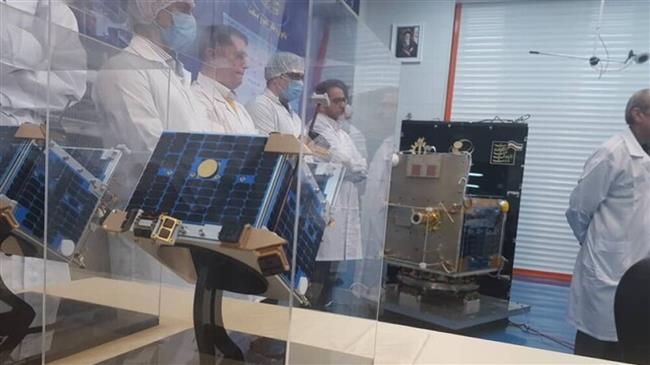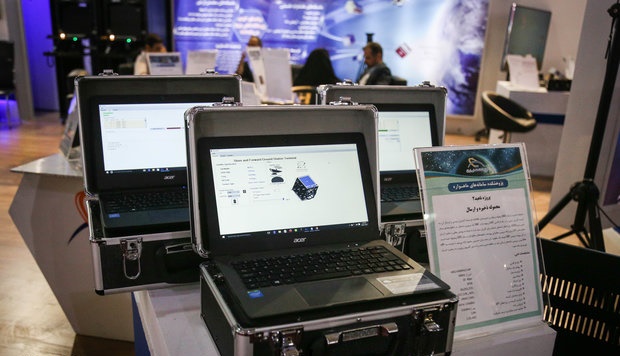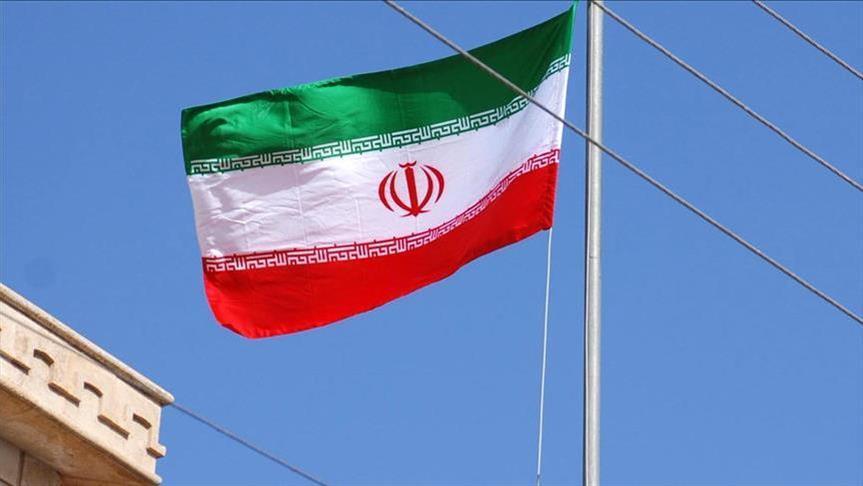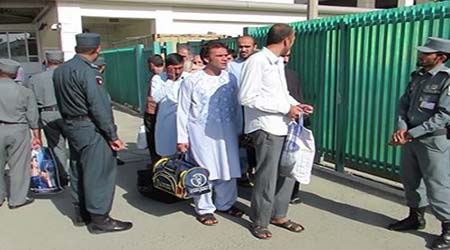Iran’s Minister of Information and Communications Technology (ICT) Mohammad Javad Azari Jahromi says two Zafar (Victory) satellites have successfully passed tests and will soon be launched into space.
Publish dateMonday 20 January 2020 - 08:32
Story Code : 201224
In a post on his Twitter account on Sunday, Azari Jahromi said the Zafar 1 and 2 satellites were being carried later in the day to the space center in central Iran for launch.
“Following attempts by young Iranian scientists, the Zafar 1 and 2 satellites, which have successfully passed their tests, will be deployed to the space center today so that the process for putting them in orbit can commence soon,” he said. “The satellite and the satellite carrier are both an important research step.”
He also wished success for the whole project.
Zafar, designed by Iran University of Science and Technology, is a 113-kilogram remote-sensing satellite equipped with high-resolution cameras capable of monitoring and transmitting data on natural resources as well as agricultural and environmental developments.
It is likely to be launched by Simorgh, also called Safir-2, an expendable small-capacity orbital carrier rocket.
The Zafar 1 satellite, which will be placed 500 kilometers above the earth’s surface, can orbit the planet 16 times a day, each taking 90 minutes.
The difference between Zafar 1 and Zafar 2 is that the latter is equipped with color cameras.
“Following attempts by young Iranian scientists, the Zafar 1 and 2 satellites, which have successfully passed their tests, will be deployed to the space center today so that the process for putting them in orbit can commence soon,” he said. “The satellite and the satellite carrier are both an important research step.”
He also wished success for the whole project.
Zafar, designed by Iran University of Science and Technology, is a 113-kilogram remote-sensing satellite equipped with high-resolution cameras capable of monitoring and transmitting data on natural resources as well as agricultural and environmental developments.
It is likely to be launched by Simorgh, also called Safir-2, an expendable small-capacity orbital carrier rocket.
The Zafar 1 satellite, which will be placed 500 kilometers above the earth’s surface, can orbit the planet 16 times a day, each taking 90 minutes.
The difference between Zafar 1 and Zafar 2 is that the latter is equipped with color cameras.
avapress.net/vdcau6nuy49nwu1.tgk4.html
Tags
Top hits












